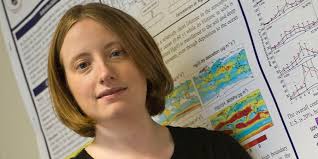There are three reasons I think harassment and discrimination in the science biz is worthy of our attention:
(1) Our public lands/environment/forest community is full of land managers, interest groups and scientists. Whether we like it or not, and whether we like each other or not, we are all a part of the same policy community. And our professional lives go back and forth in terms of employment, as we shall see in a later post. So, in a sense, what hurts any of us, hurts all of us. It’s just plain wrong, anywhere and everywhere.
(2) The flip side of this is that if anyone in the community has figured out how to stop it, others could adopt those practices.
(3) Scientists claim privilege for their views, based on framing the problem a certain way, and writing papers based on data collection and analysis as legitimized by other scientists. If they are only another Good Ole Boy network that sets about studying problems that GOB’s think are important, using disciplinary approaches picked by GOBs, and so on, then they may not be addressing the problems of the day with the diversity of thinking and approaches that we would, and should, expect from publicly funded research.
Noelle Selin writes about good old boyism, harassment and diversity in Scientific American in this blog post “Why I Confronted the American Association for the Advancement of Science” (my italics):
When many people I consider mentors and scientific leaders recently spoke publicly to honor an accomplished academic who had engaged in harassing behavior, I felt as if they were speaking directly to me. I asked myself whether they knew that the collegiality they heralded on the part of the honoree was not open to all. Did they choose to overlook how he interacted with certain women, judging this insignificant compared with his contributions? Did they realize that their praise communicated not only to those whom his actions had most severely harmed, but also to many others, that his accomplishments were more important than their participation in science?
It wasn’t any single case, though, that prompted me to initiate this public letter. Though I’ve never before spoken out publicly about sexual and gender harassment, and I rarely sign on to public letters—let alone write them—I took a leadership role in this effort for two main reasons.
First, the pervasiveness of harassment as a systemic problem in science means that efforts by all of us are needed to address it. Its impacts are not limited to the cases garnering the most public attention. Even for those who are not the direct target of the most severe harassment, our professional interactions, choices and career paths can be shaped by it. Personally, I feel these impacts when I modify my own behavior to try to avoid being the target of a known harasser; when I think about whom to sit with at meetings or social gatherings to avoid degrading or sexualized conversations; or when I hear comments suggesting my gender affects my competence and potential.
By remaining silent, all of us, especially those in positions of authority, contribute to perpetuating these harms. I contributed myself by not speaking up to tell my colleagues how I felt when hearing their accolades. Every time we fail to call out inappropriate behavior, we are tacitly accepting its systemic burdens. As a tenured faculty member, I do not want to have to teach the next generation how to evade or put up with harassment as a strategy for scientific survival.
The second reason is that I increasingly see a strong link between the inclusiveness of the scientific community and the academic issues I commit my career to and often speak publicly about: the need to engage with stakeholders to address large-scale societal challenges. Doing impactful science in my own work on air pollution, climate change and sustainability requires engaging with communities and decision makers as part of the process. Public engagement is our core mission as part of the Leshner Fellows program, and we are specifically asked to train and mentor other scientists and promote engagement within our institutions. As scientists, we are much better equipped to engage if our community actively welcomes diverse participants, ideas and perspectives.
You can support their effort here.
